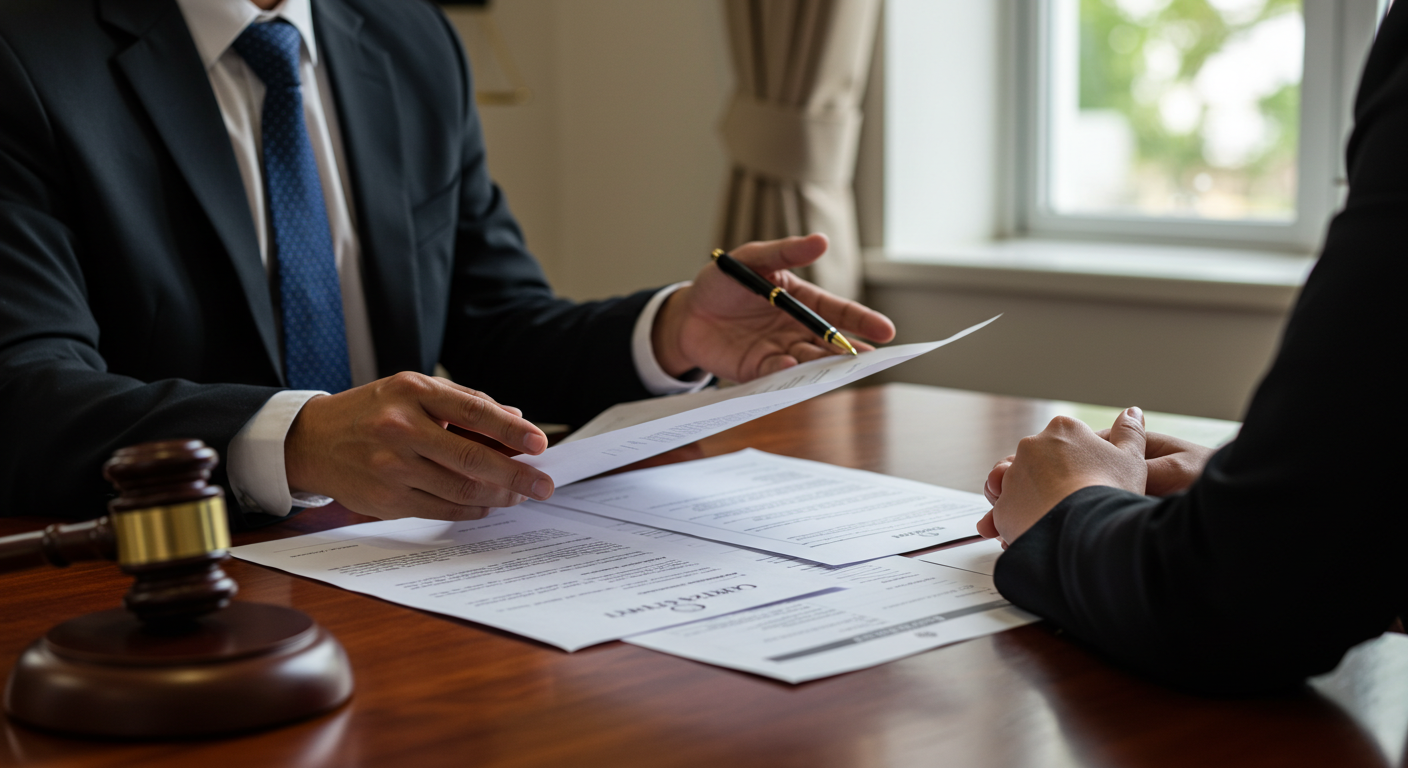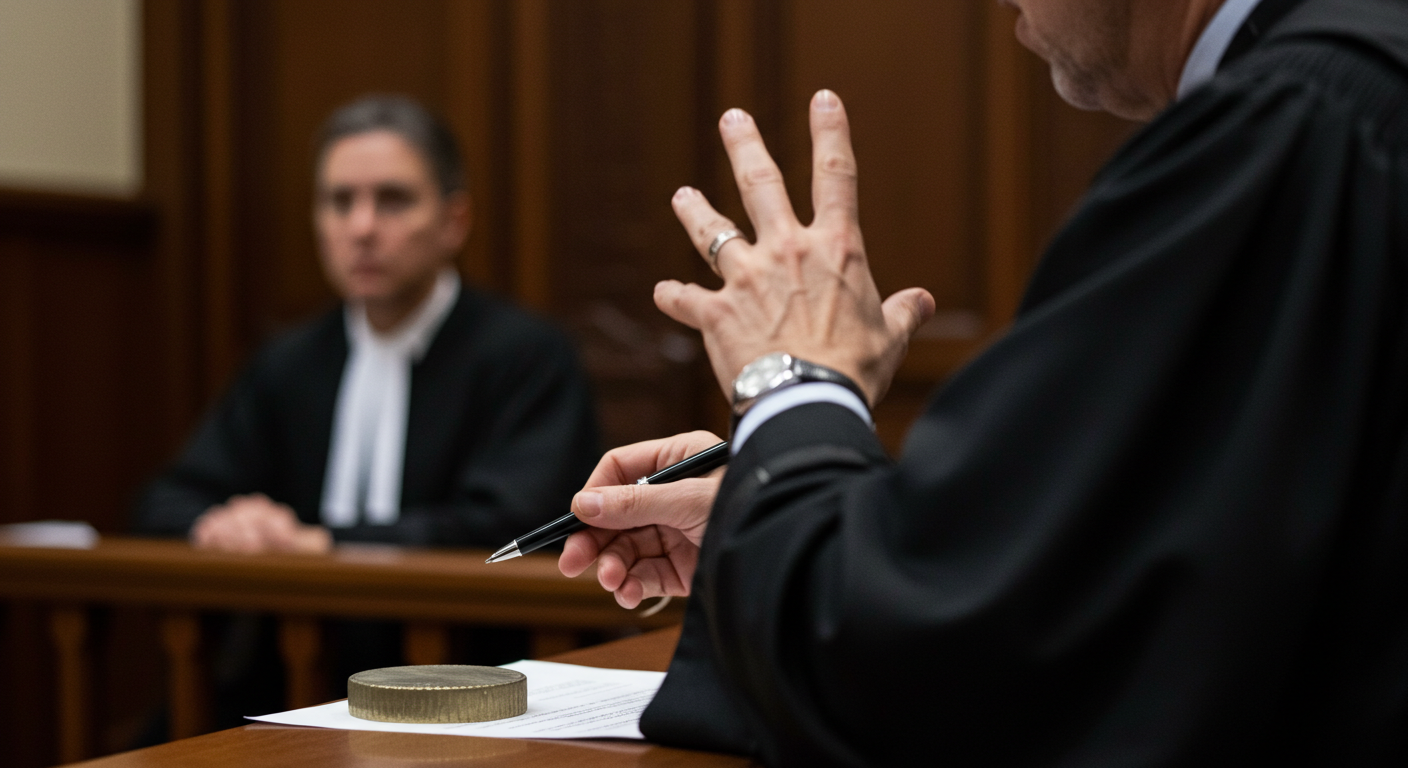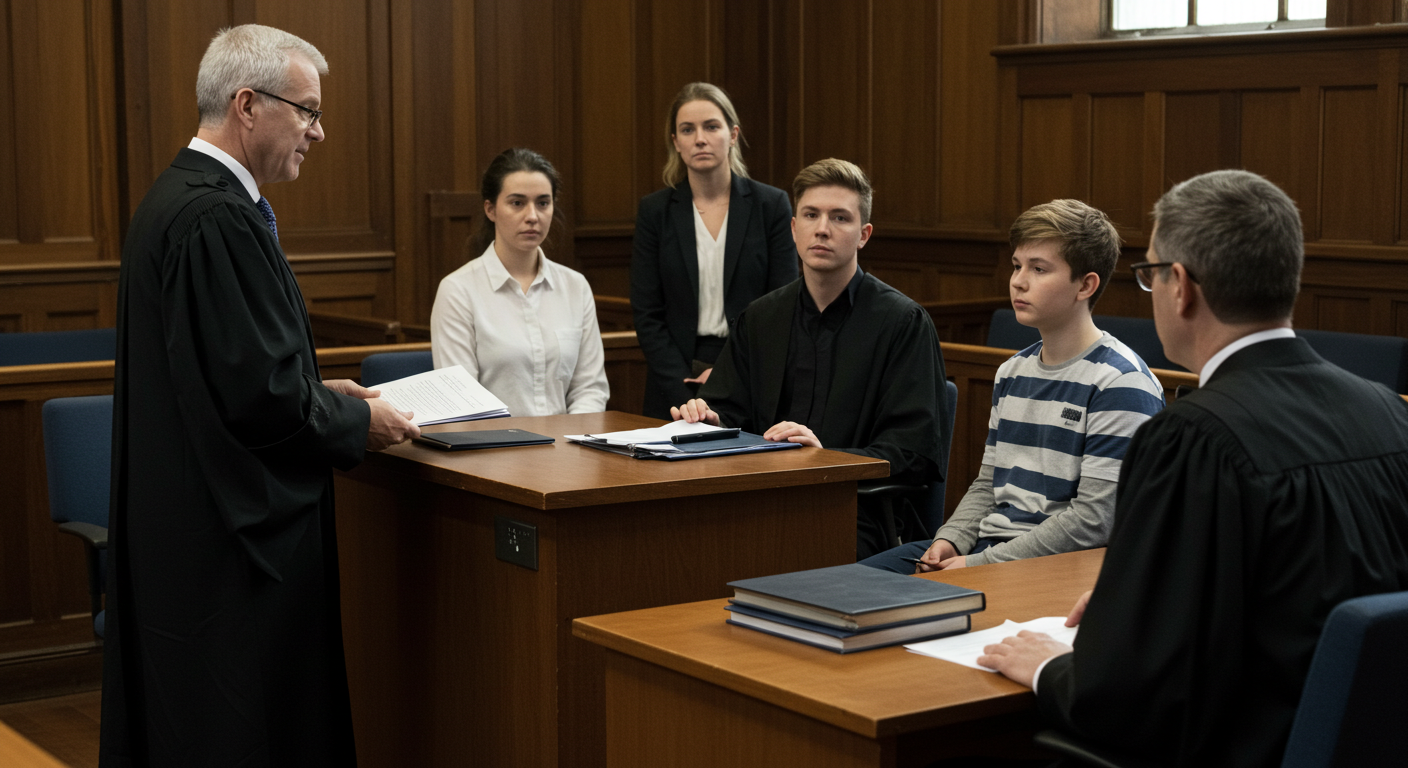How Do UK Laws Address Human Trafficking and Sexual Exploitation?

How Do UK Laws Address Human Trafficking and Sexual Exploitation?
Human trafficking and sexual exploitation are grave human rights violations that require strong legal frameworks to address and combat them effectively. In the United Kingdom (UK), there are specific laws and legislation in place to tackle these heinous crimes. Understanding the laws related to human trafficking and sexual exploitation is crucial in providing justice to victims and holding perpetrators accountable.
The Modern Slavery Act 2015, a prominent piece of legislation, forms the foundation of UK laws on human trafficking. It defines offenses related to slavery, servitude, forced labour, and human trafficking, and provides legal tools to investigate, prosecute, and convict offenders. The Sexual Offences Act 2003, on the other hand, focuses on addressing sexual exploitation, including offenses such as rape, sexual assault, and exploitation of vulnerable individuals.
The Human Trafficking and Exploitation (Criminal Justice and Support for Victims) Act 2015 further strengthens the legal framework by providing additional protections and support for victims of trafficking and exploitation. It ensures that victims receive the necessary assistance and protection while also increasing penalties for offenders.
Regarding sexual exploitation, the Sexual Offences Act 2003 plays a significant role in criminalizing various unlawful sexual activities, including offenses like child exploitation, controlling or exploiting prostitution, and pornography.
The Policing and Crime Act 2009 complements these laws by addressing issues surrounding prostitution, working towards protecting individuals involved and tackling related criminal activities.
Investigating and prosecuting human trafficking and sexual exploitation require coordinated efforts from law enforcement agencies. Such agencies play a pivotal role in identifying victims, gathering evidence, and bringing offenders to justice. The Crown Prosecution Service (CPS) works hand-in-hand with these agencies to ensure robust prosecutions and appropriate legal action against perpetrators.
Support and protection for victims are paramount in the UK’s legal framework. The National Referral Mechanism (NRM) provides a framework for identifying and supporting potential victims of trafficking.
It ensures that victims receive the necessary care, accommodation, and support services. The Legal Aid, Sentencing and Punishment of Offenders (LASPO) Act 2012 helps victims access legal representation, ensuring their rights are upheld throughout legal proceedings.
Despite the UK’s comprehensive legal framework, challenges persist. Improving identification and reporting of human trafficking and sexual exploitation cases remains a priority. Strengthening international cooperation is also crucial to combatting these crimes, as they often involve cross-border operations.
Addressing these challenges and advancing the legal framework will be vital in the UK’s ongoing fight against human trafficking and sexual exploitation.
Understanding Human Trafficking and Sexual Exploitation

Understanding human trafficking and sexual exploitation is of utmost importance when it comes to effectively addressing these issues. Human trafficking encompasses the recruitment, harbouring, or transportation of individuals through the use of force or coercion for the purpose of exploitation.
Sexual exploitation, which falls under the umbrella of human trafficking, involves using individuals without their consent for sexual purposes. To tackle these offenses, various countries, such as the UK, have implemented laws that aim to prevent, prosecute, and provide assistance to the victims.
Gaining a deep understanding of the nature and strategies employed in human trafficking and sexual exploitation is crucial in the development of comprehensive approaches to combat these abhorrent crimes.
UK Laws on Human Trafficking
When it comes to addressing the pressing issue of human trafficking and sexual exploitation, UK laws stand strong against these heinous crimes. Let’s dive into the key sub-sections that form the foundation of the The Modern Slavery Act 2015, The Sexual Offences Act 2003, and The Human Trafficking and Exploitation Act 2015. Buckle up as we explore the legislative measures taken by the UK to combat these grave violations and protect the vulnerable.
The Modern Slavery Act 2015
The Modern Slavery Act 2015 is a crucial legislation in the UK that addresses human trafficking and sexual exploitation. This act provides a comprehensive framework for identifying, investigating, and prosecuting offenders involved in these crimes.
It also emphasises the importance of support and protection for victims, with the establishment of the National Referral Mechanism. The act focuses on improving identification and reporting of cases, as well as strengthening international cooperation. The Modern Slavery Act 2015 plays a vital role in combating human trafficking and sexual exploitation in the UK.
The Sexual Offences Act 2003
In the UK is a critical piece of legislation that addresses various forms of sexual exploitation and abuse. This act covers offenses such as rape, sexual assault, and child sexual exploitation. It provides guidelines on consent, age of consent, and the definition of various sexual offenses.
The act also includes provisions for protecting vulnerable individuals, such as those with mental disabilities or who are unable to give consent. The act outlines the penalties for these offenses, including imprisonment or placement on the sex offenders register.
The Sexual Offences Act 2003 plays a vital role in combating sexual exploitation and ensuring justice for victims.
The Human Trafficking and Exploitation Act 2015
The implementation of The Human Trafficking and Exploitation Act 2015 in the United Kingdom is of utmost significance in combating the alarming issues of human trafficking and sexual exploitation.
This particular legislation provides a solid and necessary legal framework to effectively identify, prosecute, and safeguard the victims of such heinous crimes. The act significantly strengthens the ability of law enforcement agencies to carry out thorough investigations and successfully bring perpetrators to justice.
Furthermore, this act also introduces crucial measures aimed at supporting and rehabilitating those who have fallen victim to human trafficking and exploitation, such as the National Referral Mechanism.
By enhancing the legal response and imposing stricter penalties on offenders, The Human Trafficking and Exploitation Act 2015 reinforces a powerful message that the United Kingdom unequivocally condemns and will not tolerate such crimes within its borders.
UK Laws on Sexual Exploitation

In the realm of UK laws, a crucial area that demands attention and action is the issue of sexual exploitation. Digging deeper, we uncover three key legislations that shine a light on addressing this pressing concern. Enter the Sexual Offences Act 2003, the Policing and Crime Act 2009, and the Modern Slavery Act 2015.
Each of these acts plays a unique role in combating sexual exploitation and standing against the heinous crime of human trafficking. Get ready to explore the legal frameworks that aim to protect and safeguard the vulnerable, holding perpetrators accountable for their actions.
The Sexual Offences Act 2003
The Sexual Offences Act 2003 is a vital piece of legislation in the UK that addresses sexual exploitation and related offenses. It encompasses various offenses, including rape, sexual assault, and child exploitation.
This law establishes clear definitions of these crimes and sets out the penalties for offenders. It also includes provisions for protecting victims and witnesses, as well as measures to prevent sexual exploitation. The Sexual Offences Act 2003 is a significant step in ensuring the safety and well-being of individuals and combating sexual exploitation in the UK.
The Policing and Crime Act 2009
The Policing and Crime Act 2009 is an important law in the UK addressing human trafficking and sexual exploitation. It includes provisions that strengthen the criminal justice response to these crimes. The act provides law enforcement agencies with enhanced powers to investigate and prosecute offenders involved in human trafficking and sexual exploitation.
It also introduces measures to protect victims, such as enabling the provision of special measures during court proceedings and granting victims of trafficking a statutory period of reflection and recovery. The Policing and Crime Act 2009 plays a crucial role in the UK’s efforts to combat these heinous crimes and ensure justice for victims.
The Modern Slavery Act 2015
The Modern Slavery Act 2015 is an important piece of legislation in the UK that addresses human trafficking and sexual exploitation. It was enacted to provide comprehensive measures to prevent these crimes, protect victims, and prosecute offenders.
The act includes provisions on various aspects such as slavery, servitude, forced labor, and human trafficking. It also established the Independent Anti-Slavery Commissioner to oversee and coordinate efforts to combat modern slavery.
The Modern Slavery Act 2015 plays a crucial role in raising awareness, improving victim support, and strengthening law enforcement’s ability to investigate and prosecute cases of human trafficking and sexual exploitation in the UK.
Investigating and Prosecuting Human Trafficking and Sexual Exploitation

When it comes to combating human trafficking and sexual exploitation, one crucial aspect is the investigation and prosecution of these serious crimes. In this section, we’ll dive into the key players that contribute to this process.
We’ll uncover the integral role of law enforcement agencies, as well as the vital contributions made by the Crown Prosecution Service. Get ready to explore how these entities work tirelessly to bring justice to the victims and hold the offenders accountable.
The Role of Law Enforcement Agencies
The role of law enforcement agencies is crucial in addressing human trafficking and sexual exploitation. They have the responsibility of investigating and identifying cases, gathering evidence, and apprehending perpetrators while working closely with other agencies and organisations to provide support and protection for victims.
Additionally, law enforcement agencies play a pivotal role in prosecuting offenders and ensuring that justice is served. To this end, they collaborate with the Crown Prosecution Service to build strong cases and present evidence in court.
Ultimately, the role of law enforcement agencies is vital in combating these crimes and ensuring the safety and well-being of vulnerable individuals.
The Role of the Crown Prosecution Service
The role of the Crown Prosecution Service (CPS) is vital when it comes to addressing human trafficking and sexual exploitation in the UK. The CPS works in close collaboration with law enforcement agencies to thoroughly investigate and prosecute these heinous crimes.
By evaluating the evidence presented, offering guidance to the police throughout the investigative process, and effectively presenting the case in court, the CPS assumes a pivotal role. Moreover, they extend their support and provide invaluable guidance to the victims throughout the legal proceedings.
By holding accountable those responsible, the CPS actively contributes to safeguarding vulnerable individuals and dissuading the occurrence of future incidents. The expertise and unwavering commitment of the CPS are crucial in the ongoing battle against human trafficking and sexual exploitation.
Support and Protection for Victims
Amidst the prominent issue of human trafficking and sexual exploitation, let’s uncover the support and protection available for the victims. Delving into the National Referral Mechanism and the Legal Aid, Sentencing and Punishment of Offenders Act 2012, we will explore the measures in place to aid and safeguard those affected.
Brace yourself for an enlightening journey as we uncover the crucial support systems designed to protect the vulnerable.
The National Referral Mechanism
The National Referral Mechanism (NRM) plays a crucial role in addressing human trafficking and sexual exploitation in the UK. The NRM, a system designed to identify and support potential victims of trafficking, ensures that they receive the necessary assistance and protection.
Once a potential victim is referred to the NRM, a series of assessments are carried out to determine their eligibility for support. If recognised as a victim, they are provided with access to housing, healthcare, legal aid, and other essential services.
The NRM aims to ensure that victims of trafficking, referred through the National Referral Mechanism, are treated with dignity and receive specialized support to aid their recovery and integration into society.
The Legal Aid, Sentencing and Punishment of Offenders Act 2012
The Legal Aid, Sentencing and Punishment of Offenders (LASPO) Act 2012 is an important piece of legislation in the UK that addresses human trafficking and sexual exploitation. This act, enacted in 2012, focuses on the sentencing and punishment of offenders involved in these serious crimes.
It provides crucial support and protection for victims by ensuring that they have access to legal aid. Additionally, it imposes stricter sentences and punishments for offenders, thereby enhancing the deterrence factor and promoting justice for the victims.
LASPO aims to improve the overall system of justice and enhance the rights of victims. By incorporating the legal aid provision within this act, it ensures that victims have the necessary resources to seek justice and receive adequate support during their legal proceedings.
Challenges and Future Directions

In the realm of addressing human trafficking and sexual exploitation in the UK, the challenges ahead necessitate strategic efforts. In this section, we will explore two crucial aspects: the improvement of identification and reporting, as well as the strengthening of international cooperation.
With both factors in mind, we’ll discover the potential for significant advancements and the steps being taken towards a safer future.
Improving Identification and Reporting
To effectively prevent and support, it is crucial to improve the identification and reporting of human trafficking and sexual exploitation. Here are steps that can be taken:
- Create awareness: Educate the public, law enforcement, and relevant professionals about the signs and indicators of trafficking and exploitation to enhance identification and reporting.
- Training programs: Develop specialised training programs to enhance the skills of front-line responders, such as police officers, social workers, and healthcare providers in identifying and reporting cases of trafficking and exploitation.
- Hotlines and helplines: Establish dedicated hotlines and helplines where individuals can confidentially report suspicions or seek assistance, improving the reporting of trafficking and exploitation.
- Data collection: Implement effective data collection systems to gather accurate and comprehensive information on human trafficking and sexual exploitation, improving identification and reporting.
- Collaboration and coordination: Foster collaboration between various agencies, NGOs, and international organizations to share information, coordinate efforts, and ensure a holistic response, thereby improving identification and reporting.
- Whistleblower protection: Implement and enforce laws that protect those who come forward with information on trafficking and exploitation, ensuring their safety and confidentiality and facilitating identification and reporting.
Strengthening International Cooperation
Strengthening international cooperation is of utmost importance when it comes to addressing the pressing issues of human trafficking and sexual exploitation. It is essential to foster collaboration between different countries in order to effectively combat these crimes.
This collaboration entails sharing information, intelligence, and resources among nations. Moreover, it is crucial to establish partnerships between various entities such as law enforcement agencies, NGOs, and international organisations.
By working together, these stakeholders can coordinate their efforts to identify, investigate, and prosecute perpetrators who operate across borders. Additionally, this cooperation aids in the implementation of preventive measures and the provision of support to victims.
To create a united response towards these crimes, initiatives that involve joint operations and information sharing platforms play a pivotal role. Ultimately, the strengthening of international cooperation is vital in combatting these issues on a global scale.
Frequently Asked Questions
How do UK laws address human trafficking and sexual exploitation?
UK laws address human trafficking and sexual exploitation through various measures:
- The criminal justice process: The UK has legislation in place that criminalises human trafficking and sexual exploitation. Offenders can face severe penalties, including imprisonment.
- Prevention activities: The UK government has implemented prevention activities aimed at raising public awareness, identifying potential victims, and disrupting trafficking networks.
- Specialist support: Specialized organisations provide support to victims, including safe accommodation, medical care, counselling, and access to legal advice.
- Victim identification: The UK has established mechanisms to enhance the identification of victims of human trafficking and sexual exploitation, such as the Independent Child Trafficking Guardians (ICTG) Program.
- Evidence of effective interventions: The UK government funds research and evaluation to identify and implement effective interventions to combat human trafficking and sexual exploitation.
- Increased penalties: The UK has taken steps to strengthen legislation and increase penalties for those involved in human trafficking and sexual exploitation.
- Modern slavery statements: The Modern Slavery Act 2015 requires companies to publish annual statements outlining the steps they have taken to address slavery and human trafficking in their supply chains.
- Minimum standards: The UK has set out minimum standards for the identification and support of victims of human trafficking and sexual exploitation.
- Anti-trafficking capacity: The UK government works to build the capacity of law enforcement agencies, NGOs, and other organisations to effectively combat human trafficking and sexual exploitation.
What industries are commonly associated with human trafficking and sexual exploitation in the UK?
In the UK, victims of human trafficking and sexual exploitation are found in various industries, including:
- Construction
- Agriculture
- Sex industry
- Nail bars
- Car washes
- Cannabis farms
It is important to note that children are also found working in these industries, including involvement in sexual slavery.
How are victims of human trafficking and sexual exploitation recruited?
Victims of human trafficking and sexual exploitation can be recruited through different methods, including:
- In-person recruitment: Some victims are directly approached and recruited by traffickers in person.
- Online job adverts: In cases of sexual exploitation, offenders may lure victims by advertising fake job opportunities on adult services websites and social media platforms.
What are the health risks faced by individuals who have experienced human trafficking and sexual exploitation?
Individuals who have experienced human trafficking and sexual exploitation may face various physical and mental health risks, including:
- Injuries and physical pain
- Illnesses and sexual health problems
- Depression, anxiety, and post-traumatic stress disorder (PTSD)
- Substance use or misuse
What measures can healthcare professionals take to support victims of human trafficking and sexual exploitation?
Healthcare professionals can take several measures to support victims of human trafficking and sexual exploitation, including:
- Supporting GP registration without proof of address or immigration status
- Using professional language interpreting services
- Obtaining detailed medical and sexual histories from survivors or suspected victims
- Identifying and reporting suspected cases of human trafficking
- Referring individuals to relevant support services
- Applying trauma-informed approaches in providing care
- Collaborating with agencies and organizations involved in prevention and response efforts
How does human trafficking and sexual exploitation affect British victims?
British victims of human trafficking and sexual exploitation are often vulnerable individuals who have fallen on difficult times. They are lured by promises of well-paid work and decent accommodation, which turn out to be false. Victims can suffer extreme violence, threats, confiscation of identity documents, and withholding of earnings for living costs or transportation.
Notice: Informational Content Disclaimer
The content provided on this website, including articles, blog posts, and other informational materials, is intended for general informational purposes only. It is not intended as, and should not be considered, legal advice.
Visitors to this website should be aware that the information presented here is not a substitute for seeking legal advice from a qualified solicitor or legal professional. Each individual's legal situation is unique, and the information provided may not be applicable to specific circumstances.
If you require legal advice or have specific legal questions, we encourage you to contact us directly. Our experienced team of solicitors is here to assist you with your legal needs and provide tailored advice to address your concerns.
Please be advised that any communication through this website, including the use of contact forms or email, does not create a solicitor-client relationship. Confidential or time-sensitive information should not be sent through this website. To establish a solicitor-client relationship and discuss your legal matters in detail, please contact us for a consultation.
We strive to provide accurate and up-to-date information, but we make no representations or warranties regarding the accuracy, completeness, or suitability of the information contained on this website. We shall not be liable for any reliance placed on the information provided herein.
Thank you for visiting our website. We look forward to the opportunity to assist you with your legal needs.




